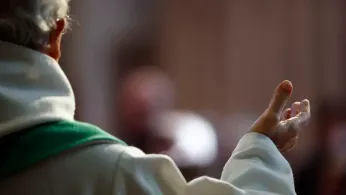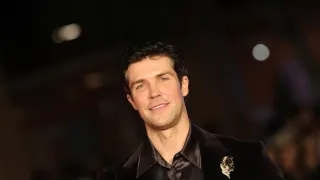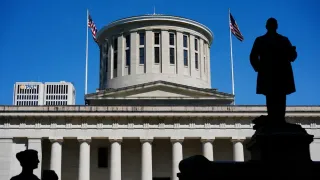
4 hours ago
Unholy Hypocrisy: Nearly 200 Anti-LGBTQ+ Christian Leaders Accused of Child Abuse—What It Means for Our Queer Futures
READ TIME: 3 MIN.
For decades, LGBTQ+ people have been painted as threats to children by some of the loudest voices in conservative Christian leadership. But as 2025 draws to a close, the true threat is coming into focus—and it’s emerging from the pulpits themselves.
A yearlong investigation by NBC News has identified nearly 200 pastors, staff, and volunteer leaders within the Assemblies of God denomination alone who stand accused of sexually abusing more than 475 people, most of them children, over the last half-century. Multiple cases involved alleged abusers being quietly reinstated to positions of authority after accusations surfaced, providing further opportunity for harm and betrayal of trust .
The reports aren’t isolated to a single denomination. From West Virginia, where former youth pastor John W. Radcliff II faces nearly 200 charges of child sexual abuse dating back to the 1980s , to major lawsuits against the Mormon Church for shielding known predators , and recent indictments against megachurch leaders like Robert Morris in Oklahoma , the pattern is chillingly consistent.
If you’ve ever sat through a sermon where queer people were scapegoated as “dangerous” or “immoral,” this avalanche of revelations hits differently. For years, anti-LGBTQ+ rhetoric has been wielded as a weapon to justify exclusion, perpetuate conversion therapy, and block basic rights—all under the sanctimonious banner of “protecting children.” Yet the evidence increasingly shows that the real wolves were in the shepherd’s clothing.
NBC News’ investigation exposed a pattern: in about 30 cases, church leaders reinstated alleged abusers, sometimes after brief suspensions, enabling further abuse. “She says her mother went to the head pastor… What happened after that meeting? Tony was suspended. Then he was back. That’s been a pattern in Assemblies of God churches,” the report noted .
The hypocrisy is not just breathtaking—it’s dangerous. When institutions that condemn LGBTQ+ identities as “sinful” are the same ones enabling or concealing abuse, it raises urgent questions about who is truly being protected, and at whose expense.
For LGBTQ+ folks, there’s an uncomfortable familiarity to this cycle of scapegoating and silence. Historically, queer people have been demonized as threats to children—a narrative with roots in Anita Bryant’s notorious “Save Our Children” campaign and echoed in countless anti-trans bathroom bills and school censorship laws. These campaigns rarely reflect lived reality; instead, they serve as political smokescreens, fueling stigma while distracting from genuine harm.
“It’s devastating, but it isn’t surprising,” says Matthew W., a parent of a survivor involved in one of the Mormon Church lawsuits. “We just don’t understand why they’re paying all these lawyers to fight this. Just change the policy” . His words echo the frustration felt by many in the queer community: the energy spent targeting LGBTQ+ people would be better used protecting children from real threats, regardless of the abuser’s identity.
What does this mean for LGBTQ+ people, especially those who grew up in or still navigate faith spaces? First, it’s a painful reminder of how institutional power can be misused—not just to harm, but to silence and scapegoat. Survivors, both queer and not, are speaking out, demanding accountability and systemic change.
Legal advocates like Sharon Iskra, who leads an Institutional Abuse & Neglect practice, are working to ensure survivors have access to justice that does not retraumatize them . But the road is long: many cases are historic, with statutes of limitations or deceased perpetrators complicating prosecution .
For LGBTQ+ communities, the moment is ripe for solidarity—centering survivors, pushing for transparency, and refusing to let faith-based bigotry define the narrative. This isn’t just about exposing hypocrisy; it’s about reclaiming our right to safety, dignity, and belonging, no matter where we worship (or if we don’t at all).
As queer people, we know what it’s like to be painted as villains in stories written by those with power. But we also know how to rewrite those narratives—through advocacy, art, chosen family, and relentless truth-telling. The reckoning unfolding in Christian institutions isn’t just a crisis; it’s an opportunity. An opportunity to challenge the structures that have long policed bodies and silenced survivors. An opportunity to demand better from all communities—secular, spiritual, or somewhere in between.
In the words of one survivor who spoke out to NBC News: “We’re not going away. We want change.”
Let’s make sure they aren’t alone.






